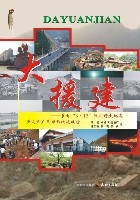While the Confederate Executive was building up its military establishment, the Treasury was struggling with the problem of paying for it. The problem was destined to become insoluble. From the vantage-point of a later time we can now see that nothing could have provided a solution short of appropriation and mobilization of the whole industrial power of the country along with the whole military power--a conscription of wealth of every kind together with conscription of men. But in 1862 such an idea was too advanced for any group of Americans. Nor, in that year, was there as yet any certain evidence that the Treasury was facing an impossible situation. Its endeavors were taken lightly--at first, almost gaily-because of the profound illusion which permeated Southern thought that Cotton was King. Obviously, if the Southern ports could be kept open and cotton could continue to go to market, the Confederate financial problem was not serious. When Davis, soon after his first inauguration, sent Yancey, Rost, and Mann as commissioners to Europe to press the claims of the Confederacy for recognition, very few Southerners had any doubt that the blockade, would be short-lived. "Cotton is King" was the answer that silenced all questions. Without American cotton the English mills would have to shut down; the operatives would starve; famine and discontent would between them force the British ministry to intervene in American affairs.
There were, indeed, a few far-sighted men who perceived that this confidence was ill-based and that cotton, though it was a power in the financial world, was not the commercial king. The majority of the population, however, had to learn this truth from keen experience.
Several events of 1861 for a time seemed to confirm this illusion. The Queen's proclamation in the spring, giving the Confederacy the status of a belligerent, and, in the autumn, the demand by the British Government for the surrender of the commissioners, Mason and Slidell, who had been taken from a British packet by a Union cruiser--both these events seemed to indicate active British sympathy. In England, to be sure, Yancey became disillusioned. He saw that the international situation was not so simple as it seemed; that while the South had powerful friends abroad, it also had powerful foes; that the British anti-slavery party was a more formidable enemy than he had expected it to be; and that intervention was not a foregone conclusion. The task of an unrecognized ambassador being too annoying for him, Yancey was relieved at his own request and Mason was sent out to take his place. A singular little incident like a dismal prophecy occurred as Yancey was on his way home. He passed through Havana early in 1862, when the news of the surrender of Fort Donelson had begun to stagger the hopes and impair the prestige of the Confederates. By the advice of the Confederate agent in Cuba, Yancey did not call on the Spanish Governor but sent him word that "delicacy alone prompted his departure without the gratification of a personal interview." The Governor expressed himself as "exceedingly grateful for the noble sentiment which prevented" Yancey from causing international complications at Havana.
The history of the first year of Confederate foreign affairs is interwoven with the history of Confederate finance. During that year the South became a great buyer in Europe. Arms, powder, cloth, machinery, medicines, ships, a thousand things, had all to be bought abroad. To establish the foreign credit of the new Government was the arduous task of the Confederate Secretary of the Treasury, Christopher G. Memminger. The first great campaign of the war was not fought by armies. It was a commercial campaign fought by agents of the Federal and Confederate governments and having for its aim the cornering of the munitions market in Europe. In this campaign the Federal agents had decisive advantages: their credit was never questioned, and their enormous purchases were never doubtful ventures for the European sellers.
In some cases their superior credit enabled them to overbid the Confederate agents and to appropriate large contracts which the Confederates had negotiated but which they could not hold because of the precariousness of their credit. And yet, all things considered, the Confederate agents made a good showing. In the report of the Secretary of War in February, 1862, the number of rifles contracted for abroad was put at 91,000, of which 15,000 had been delivered. The chief reliance of the Confederate Treasury for its purchases abroad was at first the specie in the Southern branch of the United States Mint and in Southern banks.
The former the Confederacy seized and converted to its own use.
Of the latter it lured into its own hands a very large proportion by what is commonly called "the fifteen million loan"--an issue of eight percent bonds authorized in February, 1861. Most of this specie seems to have been taken out of the country by the purchase of European commodities. A little, to be sure, remained, for there was some gold still at home when the Confederacy fell.
But the sum was small.
In addition to this loan Memminger also persuaded Congress on August 19, 1861, to lay a direct tax--the "war tax," as it was called--of one-half of one per cent on all property except Confederate bonds and money. As required by the Constitution this tax was apportioned among the States, but if it assumed its assessment before April 1, 1862, each State was to have a reduction of ten per cent. As there was a general aversion to the idea of Confederate taxation and a general faith in loans, what the States did, as a rule, was to assume their assessment, agree to pay it into the Treasury, and then issue bonds to raise the necessary funds, thus converting the war tax into a loan.















